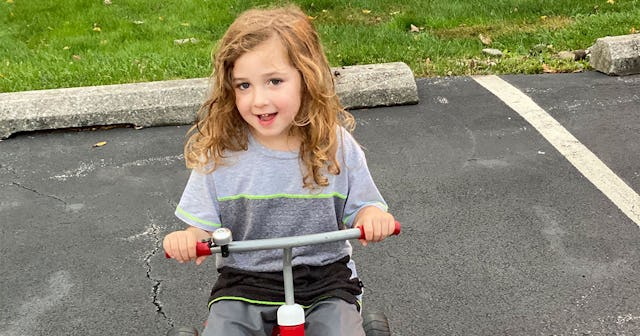During Quarantine, My 'Nonverbal' Son Has Started To Speak

I had already accepted that my son, firmly situated on the autism spectrum, was not going to speak.
I had accepted that his future would not look as I had once envisioned; I understood it would differ from the futures of most neurotypical children. I had already decided he was perfect nonetheless, and I had set about figuring out what that future could possibly look like.
My son is a very smart child. He has an eidetic memory. He learns new skills amazingly fast. He problem-solves far above his age-level. He is kind, and silly, and loving. These are his strengths, and we have all learned how to play to them. My husband, my daughter and I are fortunate he is a member of our family, and we have always been proud of this little boy exactly as he is.
Then came March of 2020 and the global COVID-19 crisis. With the adults furloughed from work, with schools closed, with compromised immune systems in our midst, we hunkered down together to wait for the pandemic to pass. And during the next few months, as my family strictly quarantined and we grew the tiniest bit sick of one another, extraordinary things began to happen.
My son started to speak.
He’s not delivering soliloquies yet, please understand. A lot of the time, his speech cannot even be understood by those who are listening. In addition to Autism Spectrum Disorder, he is diagnosed with Speech Apraxia. Every word he utters takes work; he has to fight for every sentence.
Courtesy of Shannon Greenstein
But every day, he does something new. Sometimes it’s singing along to a film; other times it’s bidding a family member goodbye without prompting. He is speaking, and it is glorious. It is thrilling and novel and suspenseful every day, and my husband and I are so excited.
I am also terrified.
You see, an entirely new world just opened up for him. Possibilities about which I had never dreamt are now precisely that – they are possible – and it is mind-blowing when you had truly accepted they were out of your child’s grasp. For the first time, I have hope he can function independently in society. I have hope he can hold employment, or meet his soulmate, or live on his own, neglecting to fold laundry and leaving out empty cups just like other bachelors his age.
But with hope comes fear, and the loss of that hope is fear realized.
Before, when I believed he would always be nonverbal, my thoughts proceeded down the only paths open to us: ASL tutors, ABA therapy, and – far down the road, though closer than I would care to realize – plans for his care when his father and I are no longer here.
I grew comfortable on those paths, with that journey. There was not a great deal that was unknown; there was not much of a mystery about the coming months or years. He would always be ours, he would always live with us, because he would never speak. There was not much use imagining him as a CEO or a thoracic surgeon, and that was perfectly fine with me; like I said, my son is incredible regardless of his communication skills.
Courtesy of Shannon Greenstein
However, unbeknownst to me, that comfort was a shadow on the wall of Plato’s Cave. It was not, it turns out, representative of reality.
Because now – now that my son is starting to speak, now that I’m seeing a strong personality emerging, now that he has opinions and favorites and jokes and fears – I’m realizing how much I like it. I’m realizing how much I enjoy this language burst, this avalanche of new words; I’m realizing how much I want it to keep going.
Before, I had prided myself on accepting my son as he was; now, I can’t help but think of how he could be more. Before, I was forced to guess at what my child was thinking; now, I can’t help but plan the existential conversations we’ll have late at night. Before, I truly believed he would be in my care forever; now, I can’t help but imagine grandchildren.
I suddenly have hope, and it feels amazing. It feels like Christmas morning and like a promotion at work and like a first kiss; it is dopamine, and it is biology, and it is motherhood, all combining to make me glow with optimism and delight and dreams.
But this hope, these possibilities, these potential quantum futures in the multiverse of realities all necessitate that my son’s progress continues. They all require that he continue to speak and to flourish and to grow; they all require this inexplicable progress to carry on.
And if it doesn’t? If it peters out, or if he regresses?
Hope is the most frightening thing of all.
This article was originally published on